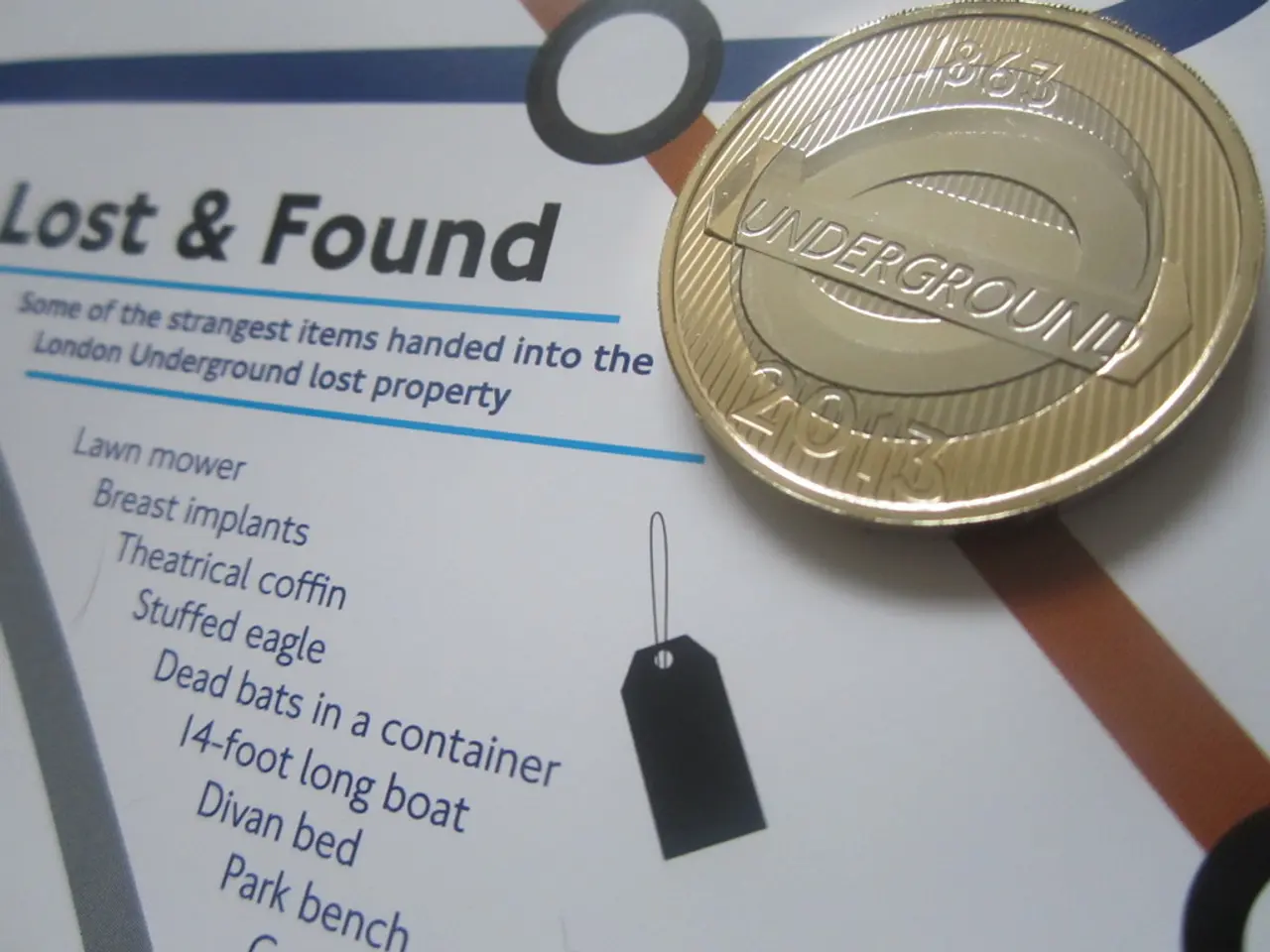Can Bitcoins be tracked? Examining privacy concerns and methods for maintaining anonymity
Heythere! Let's talk about Bitcoin anonymity, huh? So, you might've heard that Bitcoin is untraceable. But, that's BS. Every transaction you make with Bitcoin leaves a digital trail that can lead all the way back to your identity, stranger. That's right, even the mighty blockchain can snitch on ya! But, don't worry. There are ways to keep your privacy intact.
Now, to make things clear, Bitcoin isn't completely anonymous. It offers pseudonymity rather than privacy. Basically, every transaction is tied to a wallet address, not a real-world identity. But, if those wallet addresses can be connected to you, your spending habits are in the spotlight. Each transaction comes with a unique code called Transaction ID (TXID) that can be tracked on the blockchain forever. With these IDs, investigators can follow the money trail.
But, why is Bitcoin's pseudonymity so easy to crack? Well, because Bitcoin's blockchain is designed to be transparent. Every transaction is publicly recorded, and anyone can check the entire Bitcoin transaction history at any time. This openness helps prevent fraud and makes the blockchain secure, but it's not great for privacy. Unlike cash, your Bitcoin transaction history leaves a permanent digital trail.
Specialist firms called blockchain forensic firms use Bitcoin forensic analysis to track these transactions. They can uncover real identities by analyzing patterns, linking wallet addresses, and cross-referencing data from exchanges.
Now, let's bust some common myths about Bitcoin privacy. First off, no, Bitcoin is not completely anonymous. It's traceable back to wallet addresses and real-world identities. If your name isn't attached, it doesn't mean you're hidden. Your entire transaction history is out in the open if an address gets linked to you. Secondly, no, privacy wallets and mixers don't make Bitcoin untraceable. While these tools help obscure transactions, they don't guarantee you absolute privacy.
So, how are Bitcoin transactions traced? Specialists use blockchain analysis techniques to examine Bitcoin transaction history and identify connections between wallets and individuals. Some of the most common techniques are transaction clustering, heuristic analysis, address tagging, and TXID tracking. These methods allow analysts to track Bitcoin movements, even when people try to stay anonymous.
How do investigators connect wallet addresses to real identities? Here's how:
- Exchange KYC data: Many crypto exchanges require users to verify their identity before trading. If a traced Bitcoin address is linked to an exchange, investigators can request user data.
- IP address tracking: If someone doesn't disguise their IP address while making a transaction, it can be traced.
- Withdrawal patterns: If Bitcoin is withdrawn to a bank account or another payment method, it creates a clear link to a real-world identity.
- Blockchain forensic databases: Some companies keep extensive databases of known Bitcoin addresses, helping investigators match wallets to individuals or businesses.
There are examples of Bitcoin tracking in real life too. Remember Silk Road, the infamous darknet market? The FBI traced transactions from the market, leading to the arrest of its founder, Ross Ulbricht. Or, what about the Colonial Pipeline ransomware attack? U.S. authorities recovered millions in Bitcoin ransom payments by tracking transactions on the blockchain.
So, why does Bitcoin's transparency matter? Transparency has its advantages. For instance, it prevents double spending, eliminates the need for trust, and improves security. However, it also means losing financial privacy, opening yourself up to surveillance, and increasing the risk of censorship or hacking.
For those who value privacy, take extra precautions to avoid being tracked. You could lose your financial privacy—or even access to your funds. If you want untraceable crypto, Bitcoin's public ledger might not be the best choice for you.
To stay under the radar, you can use privacy tools like CoinJoin, Bitcoin mixers, and stealth addresses. These tools can help break the link between your Bitcoin addresses and transaction history, making it harder to track you. Remember, though, they don't guarantee absolute anonymity; if you reuse addresses, interact with exchanges, or fail to take additional privacy precautions, your transactions can still be traced.
In short, while Bitcoin offers some degree of anonymity, it's far from untraceable. To protect your privacy, use wallets designed for private transactions, avoid exchanges that require ID verification, cover your internet connection, use new addresses for each transaction, and keep an eye out for emerging privacy technologies. Happy Bitcoin-ing, mate!
- Despite common misconceptions, Bitcoin's pseudonymity is easier to crack than one might think, as each transaction leaves a digital trail on the blockchain that can potentially lead back to your identity.
- To effectively trace Bitcoin transactions, analysts use blockchain analysis techniques like transaction clustering, heuristic analysis, address tagging, and TXID tracking, making Bitcoin far from untraceable.




